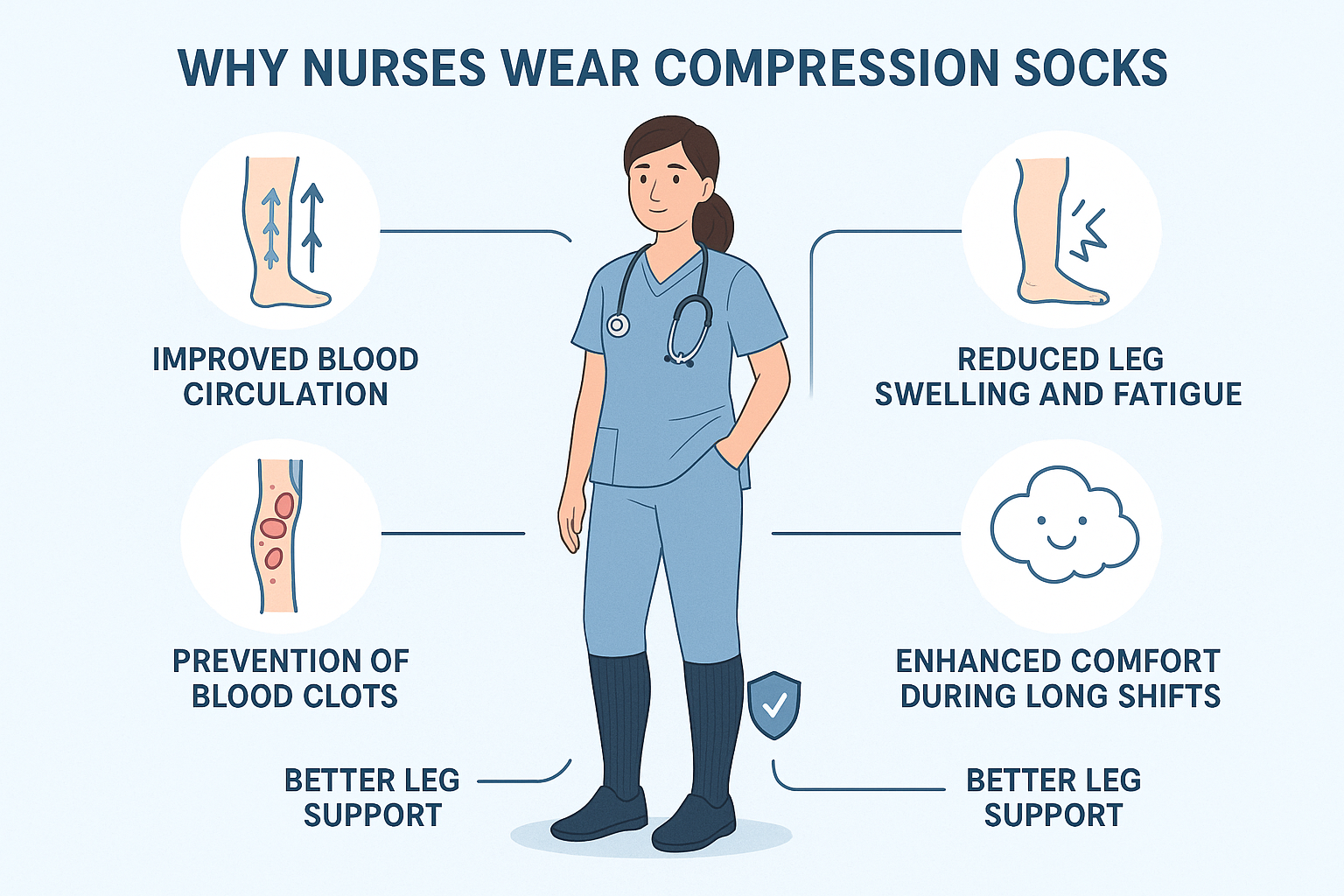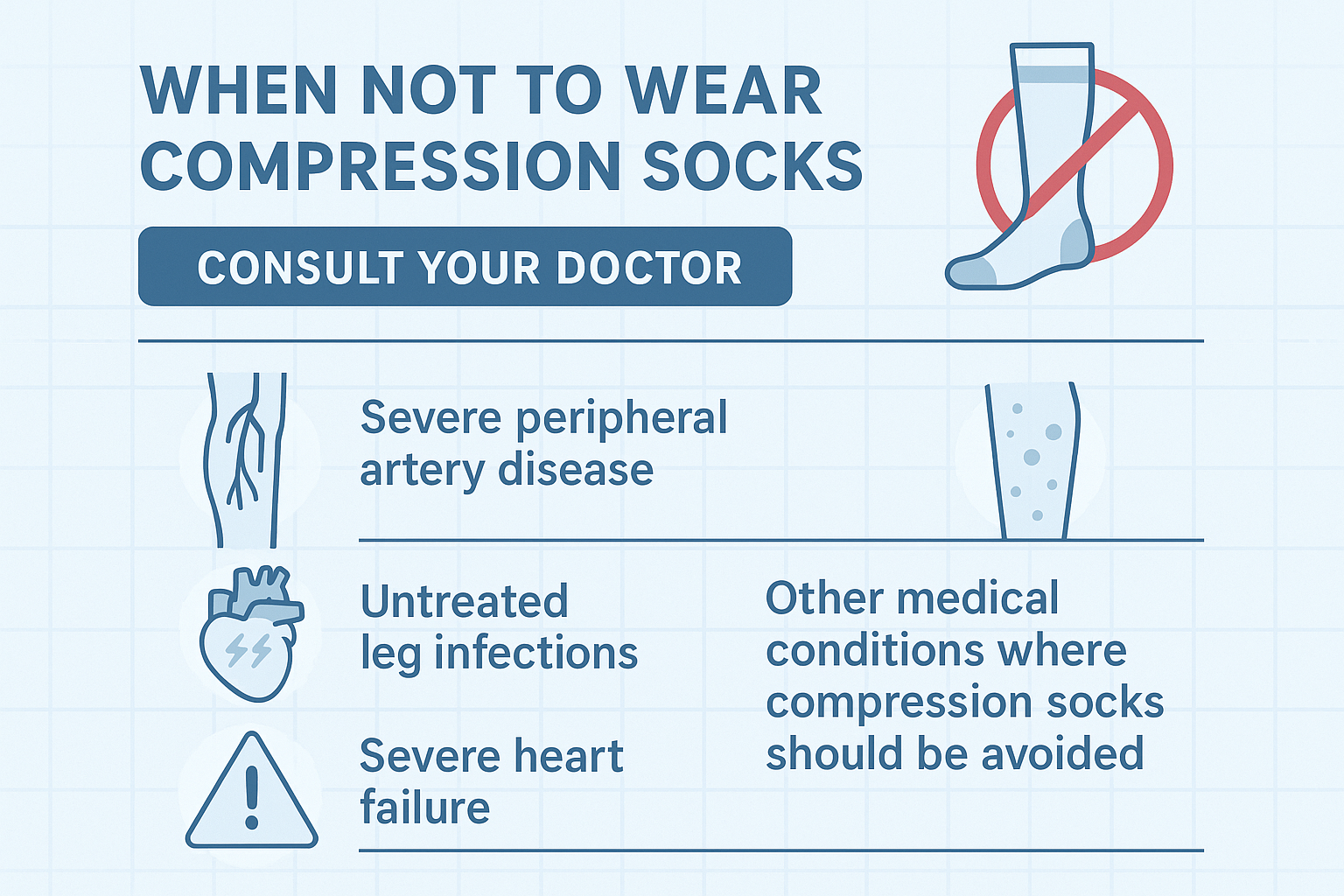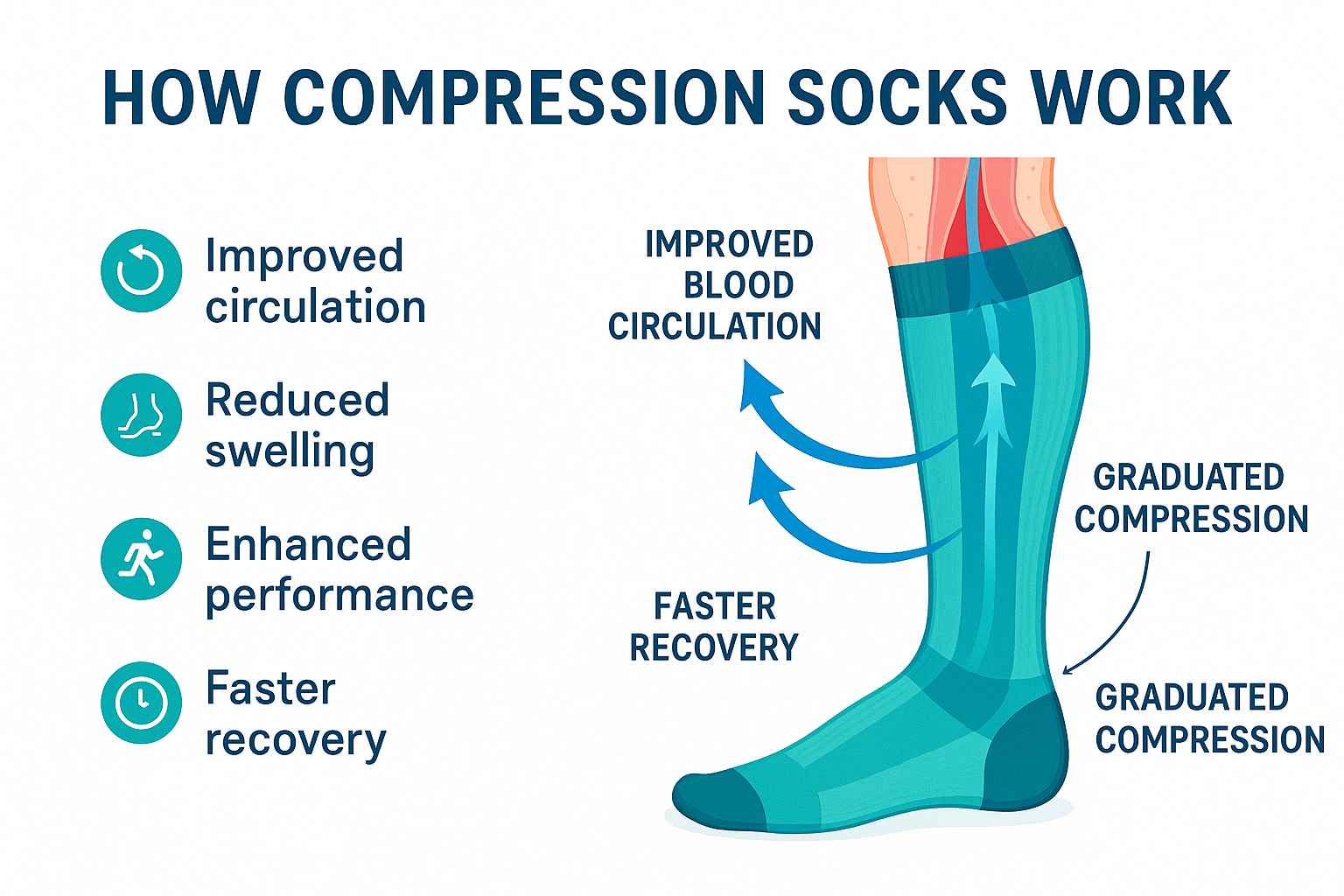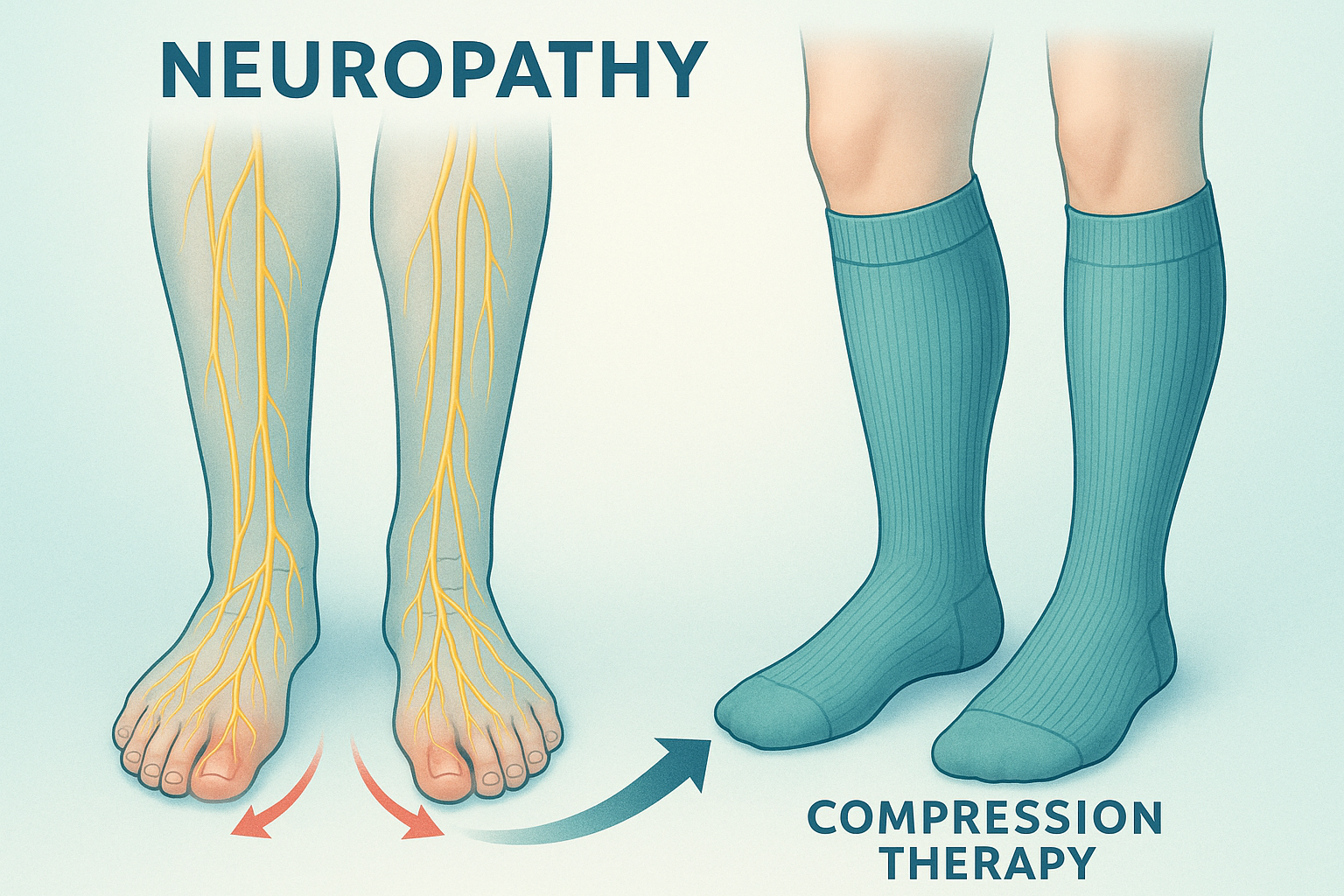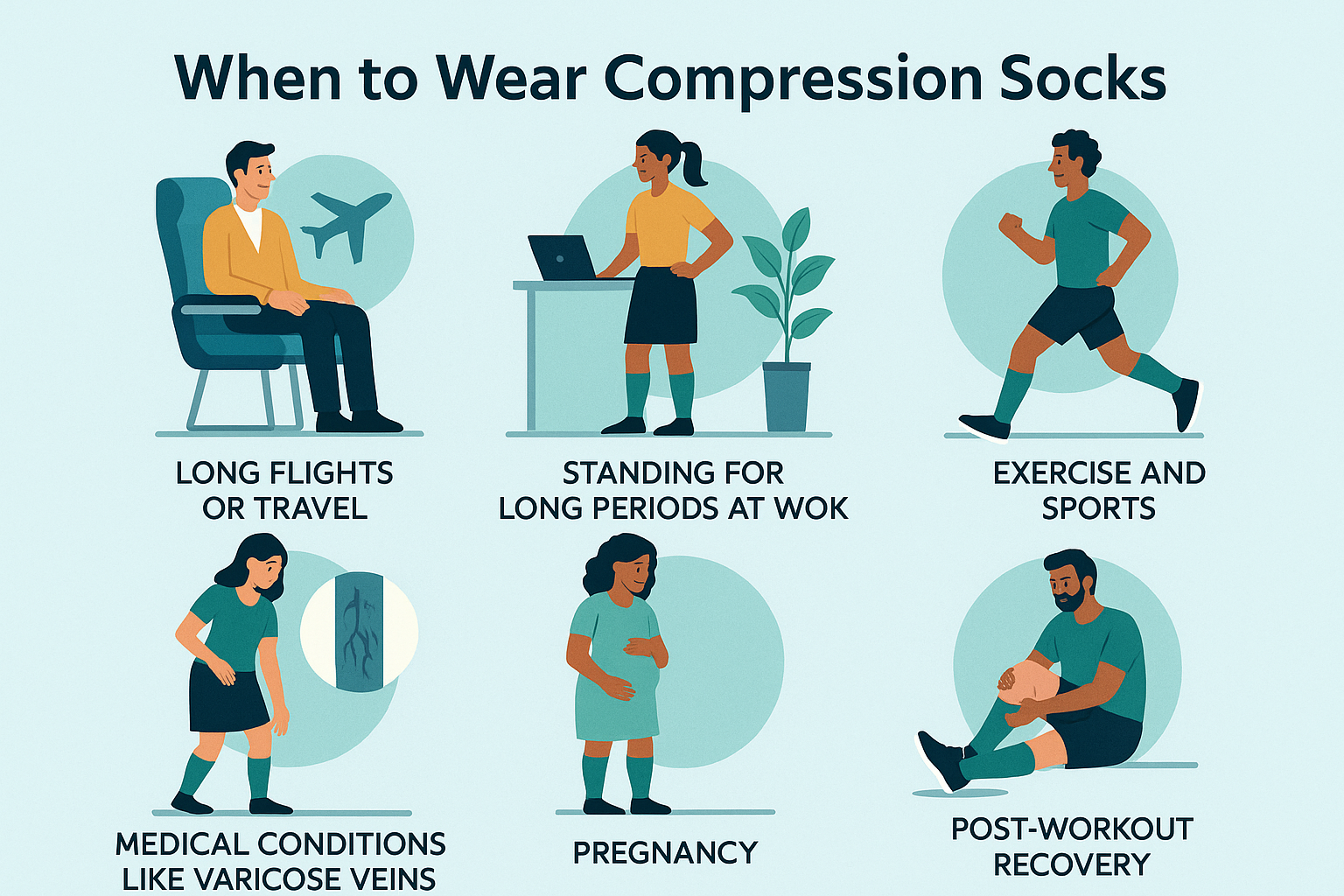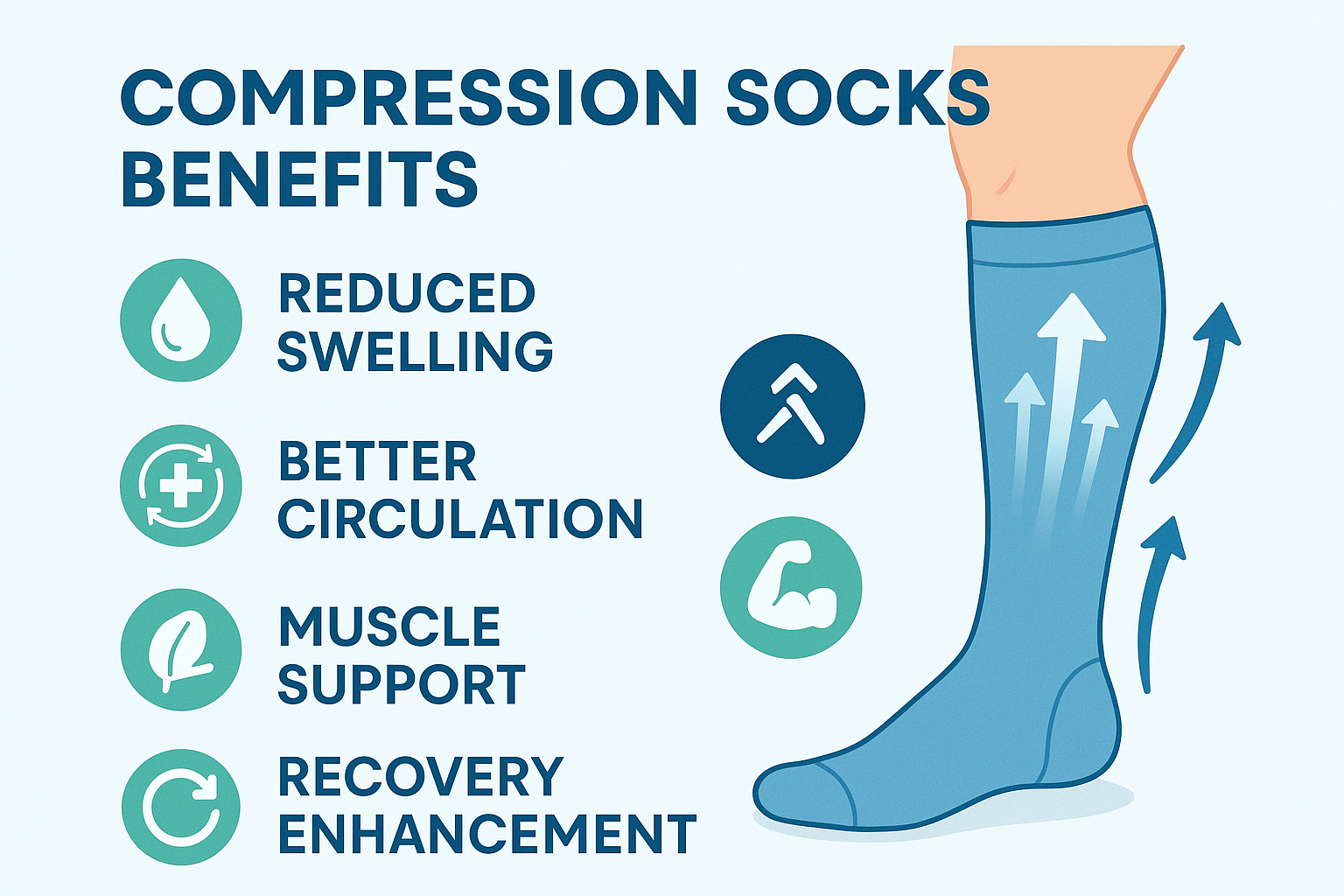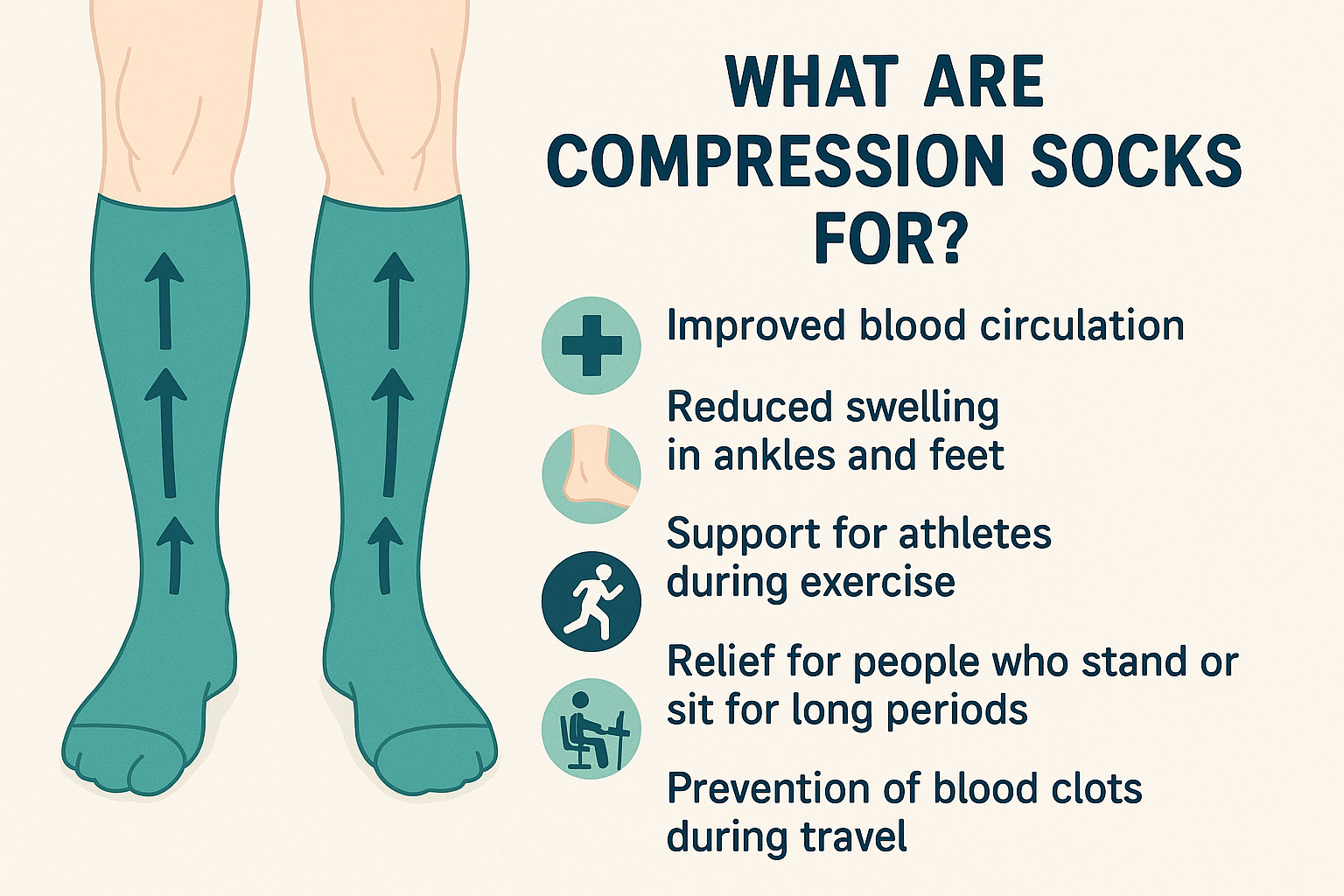Can You Sleep in Compression Socks?
Compression socks are widely known for improving circulation, reducing swelling, and supporting recovery during the day. But many people wonder: can you sleep in compression socks? The answer depends on your health needs, the type of compression socks you use, and whether a doctor has recommended overnight wear.
In this in-depth guide, we’ll break down the benefits and risks of sleeping in compression socks, explore when it’s safe, and provide expert tips so you can make the best choice for your legs and overall health.
What Compression Socks Do for Your Body
Before deciding whether to wear them overnight, it helps to understand how compression socks work. These specially designed socks use graduated pressure—tightest at the ankle and looser as they move up the calf or thigh. This pressure:
- Encourages blood to flow upward toward the heart
- Prevents swelling and fluid buildup in the ankles and feet
- Supports tired muscles and reduces fatigue
- Decreases the risk of blood clots, especially during long periods of inactivity
During the day, compression socks counteract the effects of gravity, which naturally pulls blood downward. But at night, when you’re lying flat, circulation works differently—making the need for compression less obvious.
Is It Safe to Sleep in Compression Socks?
The short answer: sometimes. For most healthy individuals, wearing compression socks during the day is enough to achieve the benefits of improved circulation and reduced swelling. Sleeping in them is usually not necessary, and in some cases, it may even be uncomfortable.
However, there are specific situations where wearing compression socks overnight may be beneficial and safe:
- Medical recommendation: Doctors may prescribe overnight compression for people recovering from surgery or managing chronic vein conditions.
- Severe swelling: If swelling persists even after a day of compression, nighttime use might be suggested.
- Pregnancy: Some expecting mothers wear mild compression socks overnight to reduce discomfort from swelling.
Potential Benefits of Sleeping in Compression Socks
Depending on your health and lifestyle, you may notice the following benefits if you wear compression socks overnight:
1. Reduced Morning Swelling
If you often wake up with puffy ankles or feet, overnight compression may help keep fluid from pooling while you sleep.
2. Enhanced Recovery for Athletes
Athletes sometimes wear compression socks overnight to support muscle recovery, particularly after intense training or competition.
3. Continuous Circulation Support
For those with circulation issues or conditions like lymphedema, overnight compression provides consistent support that daytime use alone may not fully address.
4. Pregnancy Comfort
Pregnant women dealing with swollen legs may find that light compression overnight improves rest and reduces discomfort.
Risks of Wearing Compression Socks While Sleeping
While there are benefits, it’s also important to be aware of the potential downsides of wearing compression socks at night:
- Unnecessary pressure: Since you’re lying flat, blood circulation isn’t fighting gravity the same way as when standing, so compression may not be needed.
- Discomfort: Some people find compression socks too tight to wear comfortably overnight.
- Skin irritation: Extended wear without breaks can lead to irritation, dryness, or pressure marks.
- Improper use: Wearing compression socks that are too tight or not fitted correctly can do more harm than good.
For most people, daytime wear provides all the circulation benefits without these potential risks.
Expert Recommendations: Day vs. Night Use
Doctors and health experts generally recommend wearing compression socks during the day, especially during:
- Work shifts that require long periods of standing or sitting
- Exercise or athletic activity
- Travel (long flights or car rides)
At night, unless prescribed, it’s usually better to give your legs a break. However, if you have a medical condition or special circumstance, your doctor may recommend overnight use.
Who Should Avoid Sleeping in Compression Socks?
While compression socks are safe for most people, overnight use may not be appropriate if you have:
- Peripheral arterial disease (PAD) – Compression may further reduce blood flow.
- Skin conditions – Such as eczema or dermatitis that worsen with prolonged wear.
- Nerve sensitivity – Conditions like neuropathy can make it hard to detect if socks are too tight.
If you fall into one of these categories, check with a healthcare provider before trying overnight compression.
Alternatives to Wearing Compression Socks at Night
If your goal is to improve circulation or reduce swelling without sleeping in compression socks, consider these alternatives:
- Elevate your legs: Prop your legs up with pillows to help fluids drain naturally.
- Gentle stretching: Stretching before bed improves circulation.
- Hydration and diet: Reducing salt intake and staying hydrated lowers fluid retention.
- Massage: Light leg massage before bed can also reduce swelling.
Tips for Safe Overnight Use
If your doctor recommends sleeping in compression socks, follow these guidelines for safety and comfort:
- Choose a lower compression level (8–15 mmHg or 15–20 mmHg).
- Ensure proper sizing to avoid excessive tightness.
- Use breathable, moisture-wicking fabrics to reduce skin irritation.
- Inspect your skin daily for marks, irritation, or discomfort.
High-compression socks (20–30 mmHg and above) should only be worn overnight under medical supervision.
Frequently Asked Questions
Can you wear compression socks 24 hours a day?
Generally no—most people only need them during waking hours. Overnight use is usually only recommended by a doctor.
Will sleeping in compression socks help varicose veins?
Compression therapy supports varicose vein management, but daily use is typically more effective than overnight wear alone.
Are compression socks safe for pregnant women at night?
Yes, if using mild compression and with doctor approval. Many pregnant women find relief from swelling with overnight use.
What level of compression is best for sleeping?
Light to moderate levels (8–20 mmHg) are best if recommended for overnight use.
Conclusion: Should You Sleep in Compression Socks?
So, can you sleep in compression socks? For most people, daytime wear is enough to enjoy the full benefits of improved circulation, reduced swelling, and muscle support. Overnight use can be helpful in certain situations—such as pregnancy, post-surgery recovery, or chronic swelling—but should ideally be guided by a healthcare provider.
If you’re looking to experience the benefits of compression socks for work, travel, exercise, or everyday comfort, explore our full range here: Shop Green Drop Compression Socks.
